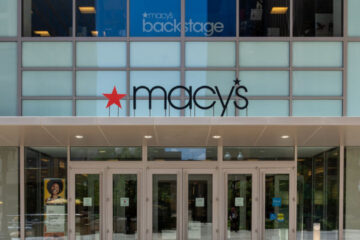“We made important progress across key programs in the second quarter and are building momentum in our turnaround,” said CEO Dave Calhoun.
Updated at 7:45 am EST
Boeing (BA) – Get The Boeing Company Report posted a wider-than-expected second quarter loss Wednesday but repeated its forecast to turn cash-flow positive thanks in part to improving supply chains and a bulging $372 billion aircraft order backlog.
Boeing said its adjusted core loss for the three months ending in June was pegged at 37 cents per share, down from a profit of 40 cents per share over the same period last year and the Street consensus forecast of a 14 cents per share loss.
Group revenues, Boeing said, fell 1.7% from last year to $16.7 billion, a tally that also missed analysts’ forecasts of $17.57 billion. Operating cash flow, however, turned positive at around $100 million for the quarter, Boeing said, and the group said it would be cash flow positive in 2022.
Boeing’s order backlog now totals around 4,200 commercial aircraft, the company said, with a list value of around $372 billion.
Stocks Higher, Fed Rate Decision, Microsoft, Google and Visa In Focus – Five Things To Know
“We made important progress across key programs in the second quarter and are building momentum in our turnaround,” said CEO Dave Calhoun. “As we begin to hit key milestones, we were able to generate positive operating cash flow this quarter and remain on track to achieve positive free cash flow for 2022.”
“While we are making meaningful progress, we have more work ahead,” he added. “We will stay focused on safety, quality and transparency, as we drive stability, improve performance, and continue to invest in our future.”
Boeing shares were marked 3.9% in pre-market trading immediately following the earnings release to indicate an opening bell price of $162.00 each.
Boeing also said that it’s working with the FAA on the ‘final actions’ needed to resume 787 deliveries.
Earlier this spring, Boeing unveiled plans to move its corporate headquarters to the suburbs of Washington, D.C. in a move widely seen as an effort to improve its relationship with the Federal Aviation Administration and big-name lawmakers on Capitol Hill.
Boeing’s reliance on a good relationship with the FAA, which was critical of its safety and reporting procedures following fatal crashes of the 737 Max in 2018 and 2018 that ultimately lead to the firing of former CEO Dennis Muilenburg, was evident in the group’s most-recent earnings report.
The planemaker said it submitted a certification plan to the FAA that it hopes could see it resume 787 Dreamliner deliveries later this year, a move that mitigated the surprisingly wide first quarter loss of around $1.5 billion.


